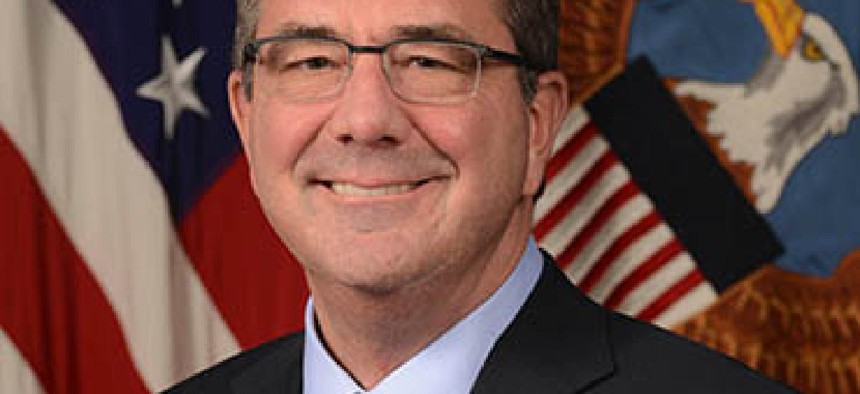Carter: U.S. disrupting Islamic State computer networks

The goal of the hacking campaign, which has intensified in recent weeks, is to cause Islamic State militants to "lose confidence in their networks," Defense Secretary Ash Carter said Feb. 29.

Defense Secretary Ash Carter said the hacking activity against the Islamic State group "is an important use of our Cyber Command and the reason Cyber Command was established in the first place."
U.S. Cyber Command is conducting a full-scale and unprecedented digital assault on the Islamic State group, Defense Secretary Ash Carter and his top general said Feb. 29.
The goal of the hacking campaign, which has intensified in recent weeks, is to cause the militants to "lose confidence in their networks, to overload their networks so that they can't function, and do all of these things that will interrupt their ability to command and control forces," particularly in Syria, Carter told reporters at the Pentagon.
Carter and Gen. Joseph Dunford, chairman of the Joint Chiefs of Staff, were circumspect in detailing the cyberattacks against Islamic State yet waded further into specificity than they have previously.
Dunford said hacking operations have already begun in Mosul, the group's center of power in Iraq. Carter has said previously that Cyber Command would be targeting communication networks in Raqqa, the terrorist group's de facto capital in Syria.
The United States does not want Islamic State operatives to know the origin of digital disruptions they might now be experiencing, Dunford said. Once deployed, such exploits lose their effectiveness because an adversary can patch the vulnerability.
"This is something that's new in this war, not something you would have seen back in the Gulf War," Carter said. "But it's an important new capability, and it is an important use of our Cyber Command and the reason Cyber Command was established in the first place."
It is well-documented that a key to the surge of U.S. troops in Iraq in 2007 was an accompanying surge in cyber weapons that the National Security Agency unleashed. But that operation predated the birth of Cyber Command, which has gained in technical prowess by being co-located with NSA at Fort Meade.
Adm. Michael Rogers, head of both organizations, said recently that the five-year-old Cyber Command is at a tipping point in maturing its offensive and defensive cyber capabilities. For Carter, the time is thus ripe to use the command's burgeoning cyber muscle, and last month he ordered the command to step up the hacking campaign against Islamic State.
The U.S. cyber campaign so far has included hitting the group's social media accounts and could extend to efforts to disrupt its online financial transactions, according to an Associated Press report.
Cyber Command was "devised, specifically, to make the United States proficient and powerful in this tool of war," Carter said, adding that other combatant commands could leverage the tools Cyber Command is honing against Islamic State.
The hacking could prompt Islamic State operatives to switch to older communications technologies that could leave them more vulnerable to targeting, he added.





